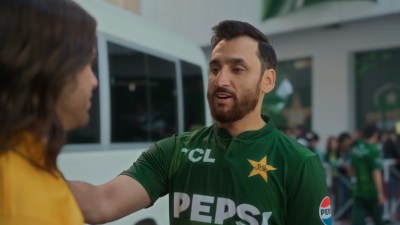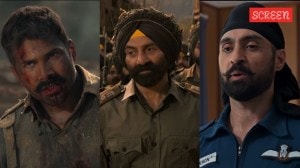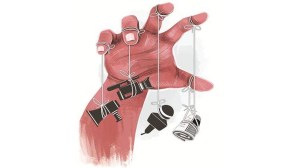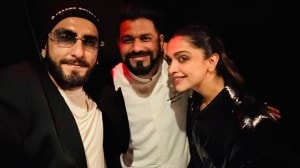Life Support
Satish Chugh has been a pucca businessman all his life.
Satish Chugh has been a pucca businessman all his life.
Satish Chugh has been a pucca businessman all his life. So the annual distribution of gifts ahead of Diwali and New Year has always been an unimaginative affair lavish packages of sweets,chocolates and flowers doled out to clients without fail. The first time he was baffled at the thought of choosing a gift was about a decade ago. I wanted to make him a card,bring him sweets and flowers,but I didnt know what to say. To doctor with love sounds horribly shallow for a man who gave me a new life not once,but twice in 10 years, says Chugh,53. Its a dilemma that he has not managed to solve till date.
Managing a family business of hardware retail out of Najafgarh in west Delhi,Chugh first met Dr PN Renjen,a senior consultant neurologist at Apollo hospital in 2001. A stroke had left him paralysed below the hip. He was 42 then. Six years later in 2007,he had another stroke,after which he he began suffering from Diplopia double vision. It was through Dr Renjens intervention that Chugh reclaimed his life. My business is growing and I lived to see my daughters marriage. I am not religious,so I give all the credit to my doctor, says Chugh.
For Chugh,the ischemic stroke a stroke that happens when an artery to the brain is blocked was a jigzaw puzzle that had put his life on hold. He had been to three other doctors in central and south Delhi,and another one at Apollo hospital,before he was finally put under Dr Renjens care. I woke up one morning,fell unconscious and then I could not stand up again on my feet. Naturally,I had a lot of questions. I was a difficult patient,not easily satisfied, he says. It was Dr Renjen who helped him recover from his trauma,explaining the disease in laymans terms,encouraging him to make the lifestyle changes that would prevent a recurrence.
Dr Renjen,who sees about 70 patients every day,describes Chugh as one of his very good patients. He says he remembers most of his patients,but his bond with Chugh is particularly strong,since he has been treating him for 11 years. We have discussed the disease,our childrens education,their careers and marriage like fathers tend to, he says.
Chronic diseases that are characteristic of neurological disorders often mark long-term relationships. It usually begins with bad news,so the start is never happy. Even now,I have to make Satishji believe every time that what I am doing is right,I will not over-investigate or over-treat him,and that I will help him adjust to the setbacks. It is all about faith, he says.
Faith,indeed,has played a crucial role in their relationship. In 2007,when Chugh had almost recovered,he had a second stroke. Looking back,he says there were moments of indecision,but he is glad he stuck with Dr Renjen. The clots returned,but he fought back, says Chugh.
In 2009,barely two years after Chughs relapse,his wife Kusum,his pillar of strength,started having cold shivers,which soon progressed to full-fledged epileptic attacks. If fate played a cruel joke on us,it also brought us in touch with a wonderful doctor. Now we are both under his care, says Kusum. A few months ago,Satishs elder sister also suffered a stroke. Hes treated so many of our family members that we have lost the fear and anxiety that one associates with doctors and hospitals, says Chugh.
Meanwhile,even as the bond between the doctor and his patient deepens,the question mark over the gift remains. I wonder if I would think so much about what to gift if it was anybody else. Does that mean I am in awe of him? I dont know. I am just very glad I was treated by him, Chugh says. As Chugh leads his wife up the stairs,without stick or wheelchair,Dr Renjen looks out of his cubicle with a satisfied smile. Its the best gift that he could possibly have got from his patient.
- 01
- 02
- 03
- 04
- 05































